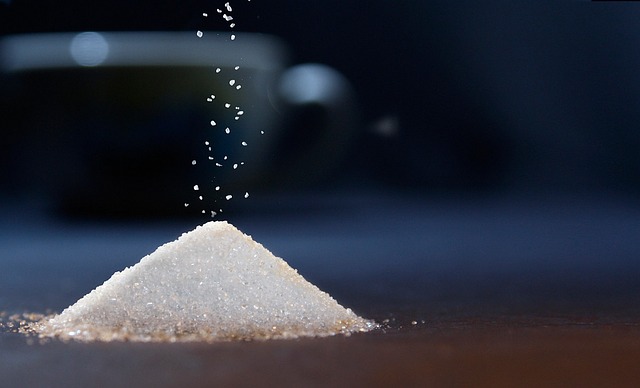Sugar pollution
Exposing soil depletion caused by growing sugar
Sugar is bad for us. So why do we grow so much of it? The area of land used to grow sugar beet is comparable to the area devoted to the production of all UK vegetable crops. In the process, sugar production controlled by one company, British Sugar, is eroding the UK’s best soils and jeopardising our future food production, while creating negative health costs paid for by the public purse.
What's the problem?
Our soils are severely malnourished and so are we. What do these issues have in common? Sugar. At a time when some parts of the UK may only have a decade of soil fertility left, our research shows that growing and harvesting sugar beet generates soil loss at a rate of around 490,000 tonnes per year. British Sugar, the company in control of the UK sugar beet industry, processes this sugar beet into 1.15 million tonnes of sugar – two thirds more than we need to fulfill the recommended daily allowance of sugar for the whole of the UK put together.
Sugar is bad for us, and it is bad for the land it is grown on. Yet amidst these challenges, British Sugar plans to ultimately increase production by 50% of their current annual output – potentially with grave potential effects for our health, land
use and soils.
What's the solution?
We urgently need to scale down the use of good soil to grow sugar in the UK. Policy to address high sugar consumption through demand alone are failing. It is time to explore the potential to constrain supply of UK-grown sugar.
Such a move poses the opportunity to stop the rapid erosion of UK soils, to incentivise production of healthy vegetables improving food security, and to orient agricultural policy around the twin goals of public health and planetary health. As well as reconsidering the sugar in our tea, it is time to reassess the role of sugar beet in our fields.
Latest updates in this campaign

Recently the government committed a small act of sanity by deciding not…

We are seeing a failure of government on sugar pollution. Last week…
What can you do to make a difference?
Sugar and spice and all things nice?
We all know that too much sugar is bad for us. However, did you know about the hidden damage UK sugar production is inflicting on our soil? We pride ourselves on shining a light on forgotten corners of the food system, and uncovering problems, like UK sugar production, which seem to be hidden in plain sight. But we can't do it without your support - will you support our investigations by donating to Feedback?
More info
Soil degradation may be largely irreversible: it takes thousands of years to create an inch of topsoil. With the UK losing some 3 million tonnes of topsoil annually, ways to halt this loss must be imagined and implemented, urgently. The question of how we grow, and what we grow, must be addressed. In doing so, we must examine the UK’s sugar industry.
Sugar beets are especially pernicious for soil health compared with other crops. Harvesting sugar beet causes approximately 9.1 ton of soil loss per hectare (excluding soil loss from water run-off ). While all root crops cause some soil loss during harvesting, beet is particularly bad because it is harvested in autumn, often in wet conditions, which is more damaging to the soil structure. A literature review of soil loss from harvest data measured in Europe revealed average soil loss due to crop harvesting values for sugar beet to be four times greater than for potatoes.
Farmers supplying British Sugar, a monopoly controlling the UK’s sugar beet harvest, extract 300,000 tonnes of topsoil from Britain’s most fertile fields during the course of the beet harvest. This suggests sugar cultivation could be responsible for a whopping 10% of the UK’s annual topsoil loss. Shockingly, British Sugar than sells this topsoil to the construction and landscaping industries under the brand TOPSOIL. In fact, this side-business makes British Sugar the largest supplier of topsoil in the UK. British Sugar is effectively converting some of the ‘best agricultural soils in the country’ into the likes of golf courses, and in the process removing them from the food system. Worryingly, British Sugar plans further growth of its TOPSOIL business.
What makes the environmental damage wreaked by British Sugar particularly troubling is that it results from growing a crop that the public, especially children, would be better off without. High sugar content in our foods is widely recognised as a leading cause of obesity and diet-related ill health. Getting more than 10% of your daily calorie intake from sugar (about 10 teaspoons) increases the risk of being overweight, obesity and tooth decay. It is worth noting that even before the removal of the EU sugar production quotas in October 2017 we were already growing and importing more than three times as much sugar as the World Health Organisation recommends. The Department for Environment, Food and Rural Affairs supported the removal of these production quotas; a policy which will lead to more and cheaper sugar adding to the 1.4 million tonnes already produced each year. This risks undermining efforts by the Department of Health and the Treasury to reduce sugar consumption with the introduction of the tax on sugary drinks. Indeed, sugar beet hectarage increased by 30% last year while British Sugar see potential to increase output by 50% now that the quota has been lifted, and there are talks of a new Yorkshire refinery that will double UK production.The USA has seen an increase in consumption of high fructose corn syrup of 1000% while corn farmers continue to receive subsidies. We must prevent the same thing from happening in the UK.
